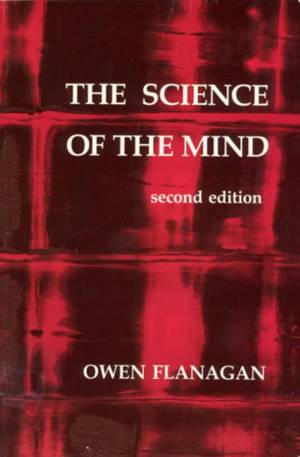
Je cadeautjes zeker op tijd in huis hebben voor de feestdagen? Kom langs in onze winkels en vind het perfecte geschenk!
- Afhalen na 1 uur in een winkel met voorraad
- Gratis thuislevering in België vanaf € 30
- Ruim aanbod met 7 miljoen producten
Je cadeautjes zeker op tijd in huis hebben voor de feestdagen? Kom langs in onze winkels en vind het perfecte geschenk!
- Afhalen na 1 uur in een winkel met voorraad
- Gratis thuislevering in België vanaf € 30
- Ruim aanbod met 7 miljoen producten
Zoeken
€ 101,95
+ 203 punten
Omschrijving
Consciousness emerges as the key topic in this second edition of Owen Flanagan's popular introduction to cognitive science and the philosophy of psychology. in a new chapter Flanagan develops a neurophilosophical theory of subjective mental life. He brings recent developments in the theory of neuronal group selection and connectionism to bear on the problems of the evolution of consciousness, qualia, the unique first-personal aspects of consciousness, the causal role of consciousness, and the function and development of the sense of personal identity. He has also substantially revised the chapter on cognitive psychology and artificial intelligence to incorporate recent discussions of connectionism and parallel distributed processing.
Specificaties
Betrokkenen
- Auteur(s):
- Uitgeverij:
Inhoud
- Aantal bladzijden:
- 442
- Taal:
- Engels
- Reeks:
Eigenschappen
- Productcode (EAN):
- 9780262560566
- Verschijningsdatum:
- 5/03/1991
- Uitvoering:
- Paperback
- Formaat:
- Trade paperback (VS)
- Afmetingen:
- 151 mm x 229 mm
- Gewicht:
- 580 g

Alleen bij Standaard Boekhandel
+ 203 punten op je klantenkaart van Standaard Boekhandel
Beoordelingen
We publiceren alleen reviews die voldoen aan de voorwaarden voor reviews. Bekijk onze voorwaarden voor reviews.









